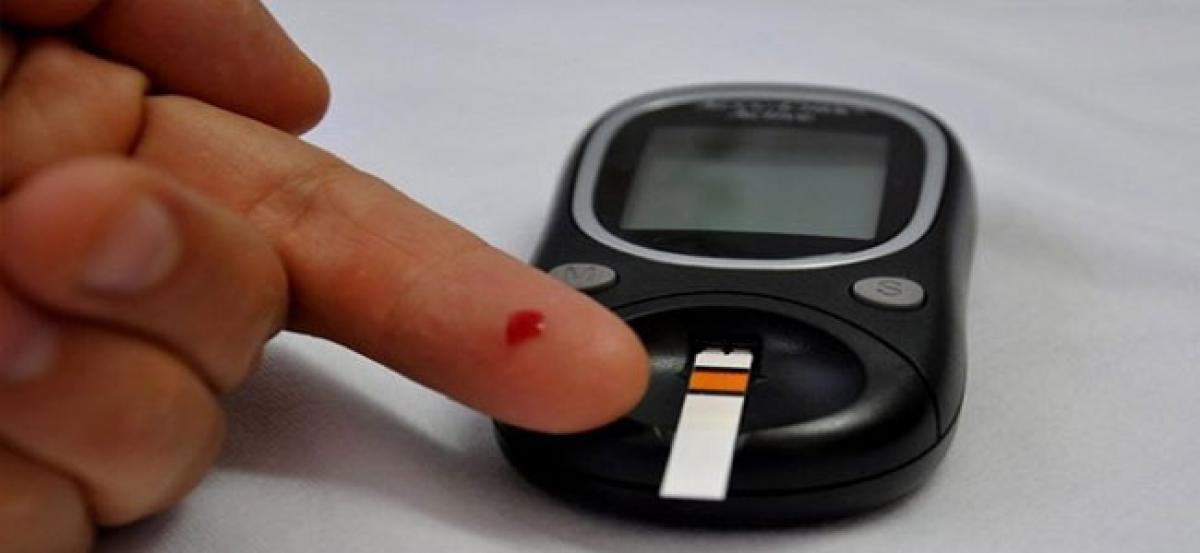Live
- Tabling CAG reports: BJP legislators move Delhi HC for special Assembly sitting
- Allu Arjun Faces Legal Case; Minister Seethakka Criticizes Lack of Support for Victim’s Family
- Taiwan Excellence announces the Top 3 global winners for Go Green with Taiwan
- Delhi High Court Denies Bail to IAS Trainee Puja Khedkar Over Forgery and Fraud Charges
- BJP rejects Kharge’s charge on EC’s ‘erosion’, says ‘most changes brought during Cong rule’
- 59 pc people seek GenAI smartphones by 2025 end globally: Report
- Crime Rate in Rachakonda Increases by 4% in 2024, Cybercrimes Surge by 42.5%
- AIM, Niti Aayog’s Youth Co:Lab challenge 2025 to foster innovation for disabled
- IIT Delhi students receive job offers from US, UK, UAE, Japan in abundance
- Pushpa 2 Leads to the Capture of Notorious Gangster Vishal Meshram in Nagpur
Just In
Myths and ignorance affecting diabetic children in India


India is host to over 97,000 type 1 diabetic children, an autoimmune disease in which the immune system destroys the insulin producing cells in the pancreas, requiring insulin replacement. Many myths surround the disease, which may affect the treatment.
India is host to over 97,000 type 1 diabetic children, an autoimmune disease in which the immune system destroys the insulin producing cells in the pancreas, requiring insulin replacement. Many myths surround the disease, which may affect the treatment.
Some of the myths or beliefs that change the understanding of the disease include the following.
- Type 1 diabetes can only happen to children: Despite being common in children, it can develop in young adults or even the elderly.
- Type 1 diabetes is caused by high sugar intake: Type 1 diabetes results from the immune system turning against the body by killing the insulin creating cells that regulate the metabolism of glucose and other chemicals, which are critical nutrients for the body.
- People with active and healthy lifestyle will never have type 1 diabetes: Lack of physical activity level and being overweight are not causative for the onset of type 1 diabetes, although having healthy and active lifestyle is always good whether one has diabetes.
- Sugar free labeled products can be taken by type 1 diabetics: One must ensure these sugar free products do not have high carbohydrates content which is broken down by the body in to sugar.
- People with Type 1 diabetes shouldn’t have children: This is a serious issue in the country. Related myths include that future pregnancy of type 1 diabetic woman means the child will get the disease. Also, it is believed that the mother plays a larger role in the child getting type 1 diabetes. All these are misconceptions. For expecting mothers suffering from the disease, it is important that glucose levels are kept in the normal range.
- Having type 1 diabetes means saying good bye to active lifestyle: The administration of multiple injections daily was a limiting factor in people’s lives, but modern innovative therapies help type 1 diabetic children and adult alike in leading active lifestyle.
Equipped with continuous glucose monitoring system, these devices help keep track of fluctuating glucose levels and alarm whenever the body requires insulin. The insulin can be delivered with the press of a button. One can go for certain degree of adventure sports, pursue hobbies and careers in certain sporting activities such as tennis, badminton, dancing, and so on.
The therapy benefits children because their meals are erratic and are at higher risk of developing hypoglycemia. At the same time, this also benefits others with less regular work hours.
Dr GR Sridhar, director, Endocrine and Diabetes Centre, Vishakapatnam says “Around 2.5% of all diabetic patients who visit us are under the age of 15 years. Type 1 diabetes is commonly seen in young adults and children, and they need insulin injections for management.
People are generally unaware of latest ways of tracking and managing glucose levels, such as the glucometer or insulin pumps. Helping to achieve more active and better lifestyle, these methods assists people in better management of disease,”
“Busting myths and creating awareness on better ways of management of diabetes is crucial to live a complete life with type 1 diabetes.
Medical support in providing appropriate diet; insulin and monitoring of glucose; psychosocial support; liaison with school authorities; ensuring proper growth and development as the child grows into adolescence and adulthood; sharing burden of care between parents and elders; and educating and making people aware are some of the measures people need to take in combating the disease”.

© 2024 Hyderabad Media House Limited/The Hans India. All rights reserved. Powered by hocalwire.com






